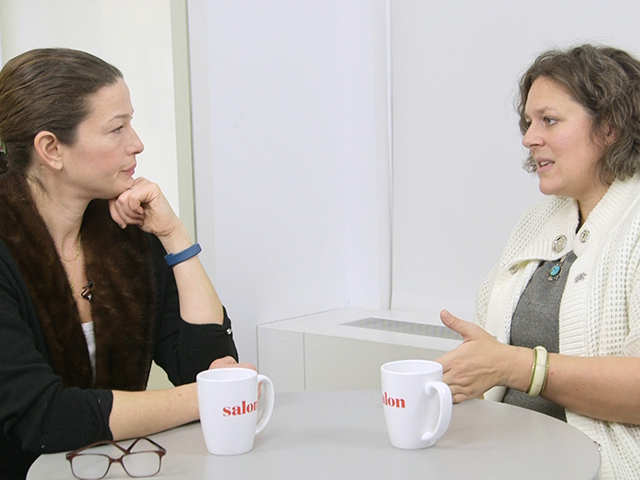Emily Janssen of StoryCorps spent 18 months on the road in an Airstream trailer in 2014, stopping in 15 cities to help more than 500 people save bits and pieces of their life stories. It was a long journey, but what came out of it was a myriad of unique memories that are now preserved forever. For those who recorded their stories it was a relief, and, many would say, a blessing. I sat down with Emily recently, and we discussed the importance of saving stories for future generations.
“We do this to remind one another of our shared humanity, to strengthen and build the connections between people, to teach the value of listening, and to weave into the fabric of our culture the understanding that everyone’s story matters,” StoryCorps’ website explains. At the same time, we are creating an invaluable archive for future generations,” says StoryCorps’ website. Janssen said not to worry about having fancy recording equipment or how perfect something ought to be; rather, what’s important are capturing the stories themselves, while you still can.
StoryCorps, for which Janssen works as Manager, Public Information & Services, is a nonprofit organization whose mission is “to preserve and share humanity’s stories in order to build connections between people and create a more just and compassionate world,” according to their website. “It’s important to save our stories because we are creating a collection of history, and it’s important to tell our own stories,” added Janssen. “We really believe in the power of listening. To build compassion, to learn from each other, and to understand who we are as humans.”
Here are some story-saving interview tips you can use when sitting down with your elders:
- Make a list of questions.Decide what you want to talk about. Think about how long you want to conduct your interview for.
- Decide who you want to interview.Figure out who and how many, and what you want to ask him/her/them about. Then, ask the person to do an interview with you. Be warned that many elders feel their story is not important. Be prepared to convince them otherwise.
- Practice!Do a test interview using the free StoryCorps app on your smartphone or tablet. Make sure you have enough storage space on the device — at least 500MB of available space is ideal. (Note: If using a smartphone set your device to airplane mode so you will not be interrupted by calls or texts.)
- Find a good time and place to do your interview(s).Sit in a quiet space that feels comfortable. Rooms without strong acoustics are better; carpets, furniture and soft surfaces absorb noise and can buffer ambient sounds you don’t want to record. Avoid large, empty rooms or public places with loud sounds like crowds that you cannot anticipate.
- Sit close to the person,and look at them when speaking. This is a personal experience, and they are sharing information that is vital to your history. Make sure they feel your interest.
- Ask them to start sentences with “I”or the full response to the question, so that if you are listening later and do not hear your question, you can still understand the answer. For example: You ask, “When were you born?” and the subject should answer, “I was born in 1936,” not just “1936.”
- Be very patient with your subject.Some people are shy, or may take time to put their answers together. Know that they may care very much about “getting it right.”
- Do not step on your subject’s answers by interrupting or asking follow-up questions until you are certain they are done speaking. Take turns speaking.
- Do not ask “yes” or “no” questions. Make them open-ended and general when possible, to get the most interesting and fulsome response.
- There’s no right answer and no wrong answer.There’s probably a lot about their lives that you don’t know anything about: move with curiosity.
- Begin your conversation with a real appreciation for the person you’re sitting with, and gratitude for them. Just be curious. Don’t worry about being perfect or think of it as a performance. Have a conversation and think about what you’d like to know and ask.

